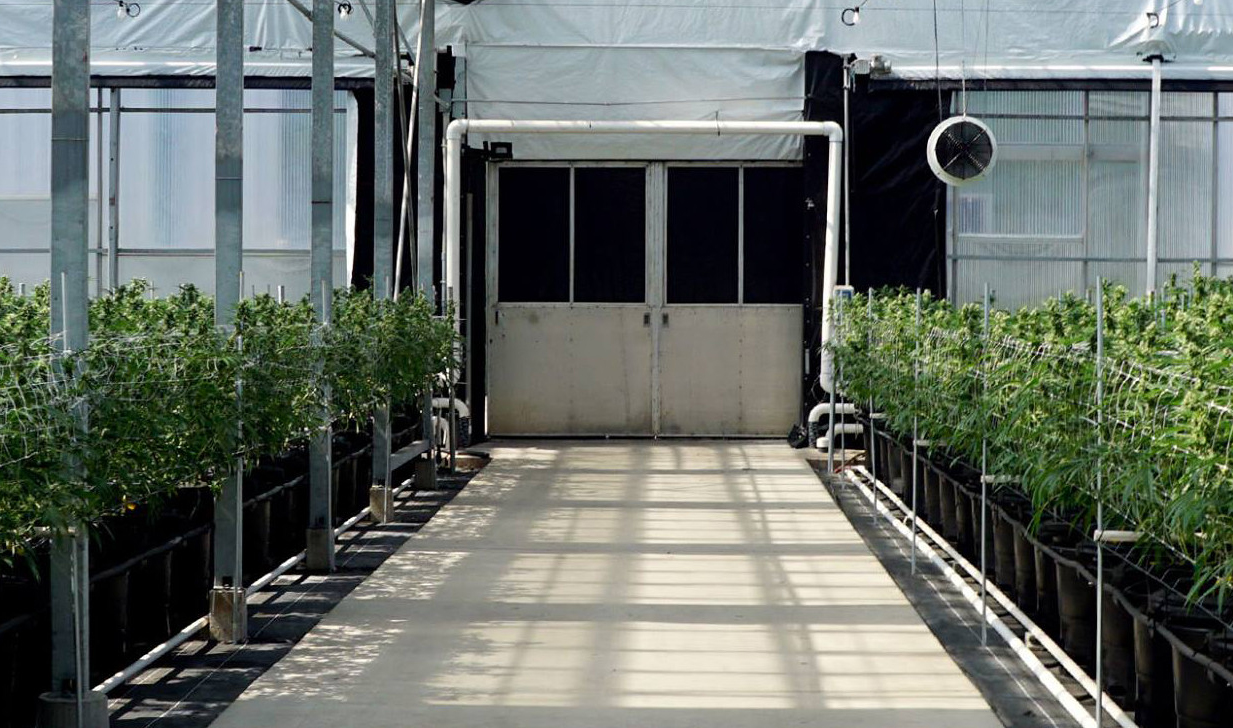Mercer Park Brand Acquisition Corp. And Glass House Group Announce Business Combination

The deal was worth appx $567 million USD
Mercer Park Brand Acquisition Corp. (NEO: BRND.A.U; OTCQX: MRCQF) (“BRND”), a Special Purpose Acquisition Company (SPAC) with the intent to focus on branded product businesses in cannabis and/or cannabis-adjacent industries, has entered into a definitive agreement to acquire Glass House Group (“Glass House” or “GH Group” or the “Company”), a vertically integrated, California-based cannabis company, and all related assets for total consideration of approximately US$567 million.
It is a condition of closing the business combination that the resulting company’s shares will be listed on the NEO Exchange (under the ticker symbol GLAS.U). Subject to the satisfaction of all required conditions, the transaction is expected to close in the first half of 2021.
“When we formed Mercer Park BRND, we aimed to create a platform that could launch the first national cannabis brands in the United States,” said BRND Chairman Jonathan Sandelman. “We view successful cannabis brand-building as a combination of four factors: the ability to control quality biomass at a large scale; produce at the most competitive costs; offer the highest quality products; and deliver the best value proposition to consumers. This took us to California with its ideal growing climate and community of talented and experienced growers, and ultimately to Glass House Group and this incredible portfolio of assets and talent. Glass House has a track record of excellence across all four of these drivers and has established a top ranked flower brand in one of the most competitive cannabis markets in the world. Combined with the proposed combination with the Southern California Greenhouse asset and 17 proposed Element 7 retail licenses, Glass House Group is poised to become the largest, vertically integrated brand-building platform in California, the world’s largest cannabis market.”
Glass House Group Transaction Highlights
- Expansive cultivation, retail and wholesale footprint:
- Cultivation: Glass House currently operates a cultivation footprint of over 500,000 ft2, producing over 110,000 lbs. of dry flower biomass per year. Glass House also has an agreement to acquire an additional 5.5 million ft2 state-of-the-art Southern California Greenhouse, an agricultural producer that will transition in phases to cannabis cultivation. This additional capacity is expected to increase Glass House’s current footprint to up to approximately 2.5 million ft2 by 2023. The Company’s total, targeted long-term footprint of 6 million ft2 is expected to be by far the largest cultivation capacity in California.
- Retail: Across the four award-winning dispensaries it currently operates in California, Glass House generated 365,000 transactions, an average in-store ticket of US$65 and an average delivery ticket of US$101 in 2020. In addition to its current footprint, Glass House has entered into an agreement to merge with 17 in-process retail licenses from Element 7, a California company specializing in obtaining dispensing licenses. These licenses are expected to bring the Company’s retail footprint to a total of 21 open locations by the end of the first quarter 2022, representing the highest statewide store count of any single California cannabis operator.
- Wholesale: Since beginning its CPG business in early 2020, Glass House added 250 retail doors to its CPG distribution, achieving a US$50 million annualized revenue run rate for its wholesale business at year-end. Over the long term, the Company aims to build its wholesale network to over 700 dispensaries statewide.
- Growing, differentiated brand portfolio:
- Glass House Farms: The company’s flagship flower brand for the everyday cannabis consumer launched in early 2020, reaching 4% market share and rising from #63 to #2 on BDS’ statewide ranking by year-end 2020.
- Forbidden Flowers: Bella Thorne’s female Millennial- and Gen-Z-targeted brand, spanning THC flower, hemp flower, and soon, vape products.
- Mama Sue: Well-known industry activist Sue Taylor’s brand offers wellness-focused tincture and topical products to target consumers aged 35 and older.
- Robust financial profile:
- Strong momentum: In 2020, Glass House grew revenue 185% year-over-year to US$53 million and generated positive adjusted EBITDA, driven by its expanded cultivation and distribution footprint, improved supply chain and production efficiencies, and enhanced consumer brand profile. Including the assets of the Southern California Greenhouses and proposed Element 7 retail licenses, the combined company expects to generate full year 2022 revenue and adjusted EBITDA of approximately US$326 million and US$104 million, respectively.
- Accelerating cost efficiencies: Glass House will purchase the additional Southern California Greenhouse capacity well below replacement cost at US$40 per ft2, or US$55 per ft2 on an all-in basis, including capital expenditures required to convert the facility to cannabis cultivation. As its expanded greenhouse facilities ramp over time, Glass House expects to reduce production costs from the current rate of approximately US$150/lb. of dry flower to US$100/lb.
- Free cash flow positive and fully funded build-out: Glass House Group expects to be free cash flow positive from operations in 2022. Capital expenditures of US$80-90 million over the course of 2021 to 2023 to build to 2.5 million ft2 are expected to be funded from operating cash flow and balance sheet cash. The Company is expected to have up to US$355 million of cash on the balance sheet at closing, assuming no redemptions.
Commenting on the acquisition, Glass House’s co-founder and CEO, Kyle Kazan, stated: “We are pleased to partner with the BRND team as we build an even more efficient, expansive platform for our brands. Our inaugural flower brand launch last year was a tremendous success, with our BDS ranking increasing from #63 in the state to #2 by year-end 2020. Further, we have established a strong retail and wholesale network and best-in-class cultivation processes, all anchored by a scaled and highly efficient cost structure. I am incredibly proud of the robust operation we have built over the past five years, and we look forward to augmenting these strengths to further capitalize on the growing statewide and national CPG opportunity.”
Transaction Terms & Financing
Total consideration for all assets in the combination is approximately US$567 million, representing a 2022 revenue and adjusted EBITDA multiple of 1.7x and 5.5x, respectively, and a respective 2023 revenue and adjusted EBITDA multiple of <1.0x and <2.5x. The full consideration amount includes US$325 million for Glass House, US$219 million1 for the Southern California Greenhouse and US$24 million for the 17 Element 7 retail licenses.
BRND shareholders and the management teams of Glass House, Southern California Greenhouse, and Element 7 will roll 100% of their current ownership into Glass House Group stock. Assuming no redemptions and including the US$85 million private placement, the combined company expects to have up to US$355 million of cash available following the closing of these transactions and to remain well-capitalized to fund its long-term growth objectives.
The transactions are expected to close in the first half of 2021, with Glass House founders retaining over 50% of the voting interest.
Following the close of the transactions, Glass House co-founders Kyle Kazan and Graham Farrar are expected to continue to serve as CEO and President, respectively. In addition, the following individuals are expected to constitute the board of directors:
- Kyle Kazan – Co-Founder, Chairman & CEO of Glass House Group brings more than 30 years of successful Private Equity and investment experience with a focus on commercial real estate globally
- Graham Farrar – Co-Founder and President of Glass House Group brings his dedication to the cannabis plant and over 20 years of entrepreneurial experience, including being part of the original founding teams at Software.com and Sonos
- Jamie Mendola – Head of Strategy and M&A at Mercer Park LP, has over 20 years of experience as a private and public equity investor; founder and CEO of Pacific Grove Capital which launched one of the earliest dedicated SPAC funds in the US
- Humble Lukanga – Founder of Life Line Financial Group, a premiere wealth management firm servicing the entertainment and sports industry
- Jocelyn Rosenwald – Co-Founder Glass House Group, is a veteran of the real estate investment and management industry
- Hector De La Torre – Member of the California State Assembly (LA 2004-2010), current Chair of LA Care, the largest public health plan in the US, and a trustee of Occidental College
- George Raveling – First African American basketball coach in the Pac 12, head basketball coach at Washington State, University of Iowa and USC; assistant coach US Olympic teams in 1984 and 1988, former Director of International Basketball at Nike, and member of the Naismith Memorial Basketball Hall of Fame
- Bob Hoban –12-year veteran of the cannabis industry and Founder of Hoban Law Group, a leading commercial cannabis law firm and co-founder of Gateway Proven Strategies, a global cannabis consulting firm
Outlook
Following the completion of the business combination, Glass House intends to remain focused on driving growth through increasing the penetration of its branded products in owned dispensaries, expanding wholesale distribution throughout California, focusing on higher-margin CPG product line extensions and improving the efficiency and productivity of both its cultivation and in-store operations. Driven by these strategic priorities, the combined company expects to generate full year 2022 revenue and adjusted EBITDA of approximately US$326 million and US$104 million, respectively. In 2023, the company expects growth to continue to approximately US$601 million in revenue and US$240 million in adjusted EBITDA.
This forecast assumes, among other things, the opening and full operation of 21 retail dispensaries by the first quarter of 2022 and the completion of Glass House’s planned cultivation expansion to 2.5 million ft2. in 2023. These initiatives are expected to require approximately US$80-90 million in total capital expenditures to execute in full. In addition, these expectations assume that Glass House’s long-term cultivation facility expansion will be only half complete by 2023.




































